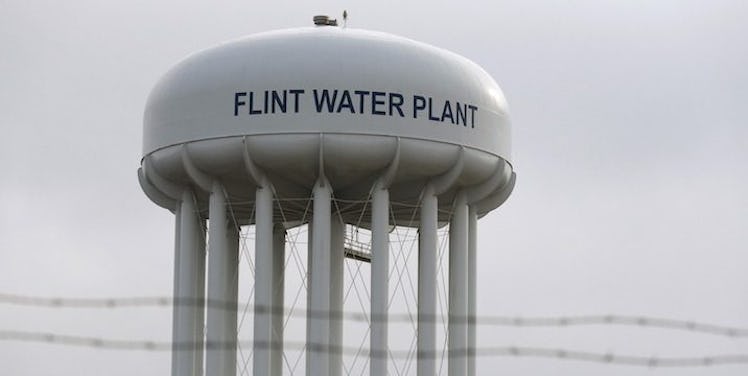
Flint's Finally Getting Clean Water, But There's An Infuriating Catch
The residents of Flint, Michigan, have lived without reliable access to safe water since 2014.
To put it another way: An American city has lived without access to life's most basic necessity for three years.
Now, the state of Michigan has agreed to spend $87 million to replace roughly 18,000 lead-tainted pipes over the next three years.
While this is good news for Flint, it also means its residents have to wait until 2020 to have safe, clean water.
The people of Flint are not responsible for any of this; they were poisoned by their own government due to ineptitude and greed.
In 2014, Flint's water supply was switched from Lake Huron in Detroit to the Flint River by Michigan's government.
But the necessary precautions were not taken, and the water was not properly treated. In the process, it became contaminated with lead from old pipelines.
Thousands of children — roughly 8,000 — were exposed to high levels of lead.
Lead poisoning is very serious, particularly for children, and can lead to lifelong health issues, including cognitive and behavioral problems.
The lead exposure in Flint was also linked to a number of deaths from Legionnaires disease.
Even after it became evident the city had been poisoned, the government continued to claim the water was perfectly fine.
It took prolonged public outcry and the involvement of experts, including scientists from Virginia Tech, for the government to fess up and admit that the water was not safe.
Over a dozen state and local officials have been charged with crimes in relation to this crisis, but this does nothing to alleviate the permanent damage that's been done.
Children were poisoned and could face health problems for the rest of their lives. People died, while others were left feeling abandoned and forgotten by the government.
Facing inaction from the government, many locals have spearheaded initiatives to address the crisis, including former convicts.
What's happened in Flint is emblematic of the fact the government in the US, on both the state and federal level, does not care about the poor.
This is especially true when the poor are also people of color.
Flint is 56.6 percent black, with a median household income of $24,862, according to the US Census Bureau, and 41.2 percent of people in the city live below the poverty line.
It doesn't reflect very well on a country when it allows one of its poorest cities to be poisoned, and then neglects to adequately address the problem for years.
Meanwhile, a December 2016 report from Reuters shows thousands of other American cities have even higher levels of lead poisoning than Flint, but this is receiving little attention or funding.
Under President Trump, this could become even worse, especially for the poor.
His proposal to cut 25 percent of the Environmental Protection Agency's budget threatens public health a great deal, as it would cut millions in grants to address lead poisoning.
Sadly, it seems we are poised to see situations even worse than what happened in Flint.
Citations: Michigan and Flint just agreed to replace 18,000 lead-tainted pipes (The Washington Post)